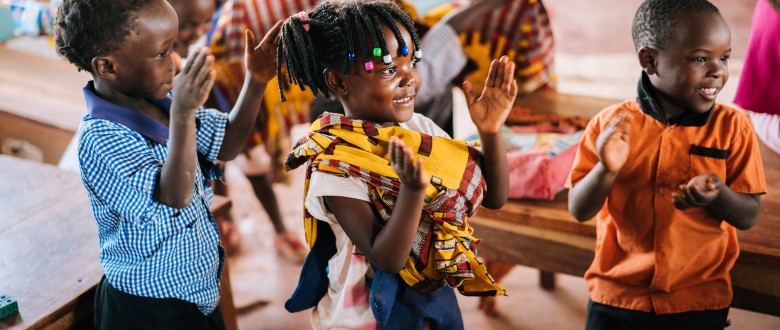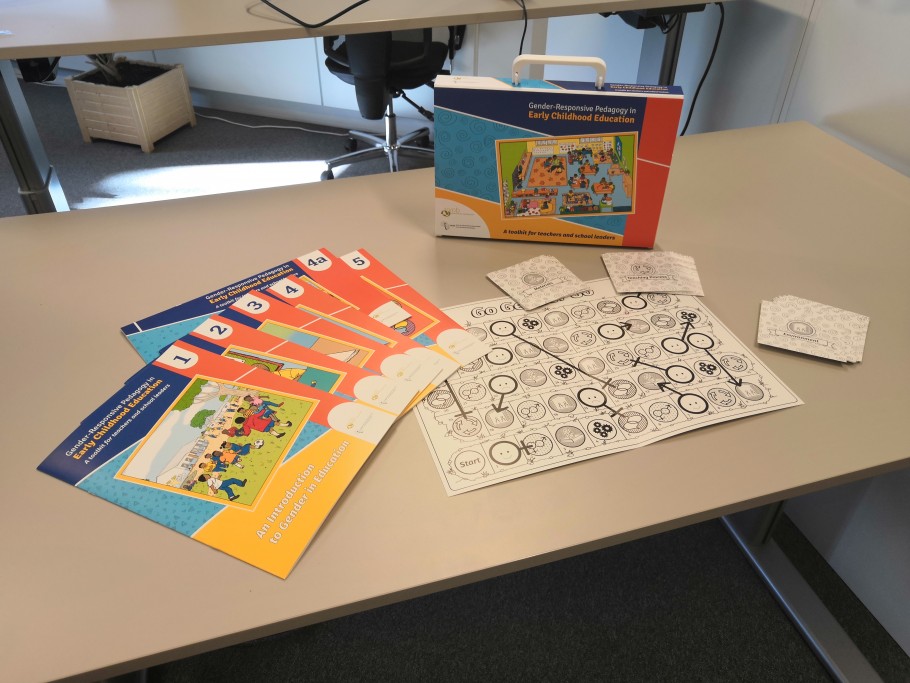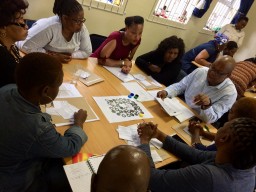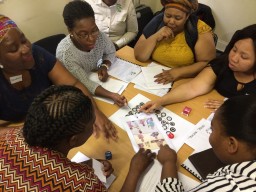
VVOB, Forum for African Women Educationalists (FAWE) and public education partners in Rwanda, South Africa and Zambia have joined forces to develop a practical approach to gender-responsive pedagogy for early childhood education (GRP4ECE). The GRP4ECE toolkit empowers preschool teachers and school leaders to challenge gender stereotypes where they can do the most harm, but where they can also be challenged most effectively: the classroom. An environment free of stereotypes lays a firm foundation for young children to grow up freely exploring and developing their unique interests and talents.
For the full story and to download the GRP4ECE toolkit, scroll down. But first: check out the complete video about the importance and impact of GRP4ECE.
[Some images may not show correctly when viewing the download on an Apple device - due to bugs in certain versions of iOS]
Challenging stereotypes in the early years
A lot of attention has been going to secondary education when it comes to combatting harmful gender stereotypes, which is definitely an effective approach to empowering many girls and young women. But with enrolment in preschools rising in every region of the world, and given the rapid brain development of children in the early years, early childhood education (ECE) should be given due considerations in the matter.
The sense of urgency grows even more when examining relevant research:
- The concept of gender takes root in children between the ages of 3 and 7.
- By this age, children have acquired strong gender biases.
- These gender biases include ideas about which jobs men and women should fulfil.
- By the age of 7 or 8, girls have already been negatively affected by gendered interactions and masculine conduct of boys in school.
Most available research on the topic considers data from the North, highlighting the need for more scientific scrutiny in the global South. Yet it all points to one main conclusion: young children are extremely susceptible to prevailing gender stereotypes in the societies they are growing up in. This has a profound impact on the expectations both girls and boys have about their future lives and thus choices. They are not free to develop to their full potential.
Teachers unlock their potential with GRP4ECE
Harmful gender stereotypes invade young children’s lives in many ways: at home, in the media, in stores… but also in the classroom in learning materials and through teachers. Indeed, while preschool teachers are authority figures and as such critically placed to challenge all sorts of gender stereotypes, they first need to become aware of their own biases. Only then can they take up their instrumental role in challenging stereotypes proactively.
For example, teachers praise girls more often for their clothing, appearance and caring behaviours. Conversely, teachers are more prone to compliment boys for their physical strength and to give them more complex tasks, attention and room to express themselves. This shapes a worrisome perception of society being a place where men take up more active roles, and where less is expected of women.
But preschool teachers have their learners’ best interest at heart, and do not do this consciously. That is why VVOB, FAWE and public education partners in Africa have teamed up to develop the GRP4ECE toolkit, a very practical (and fun!) low-cost tool for teachers to use in their classrooms.

The toolkit enables teachers of the early years to not only become aware of their gender biases and overcome them, it also supports them to proactively challenge budding gender stereotypical ideas in their learners. The toolkit has been developed with input from a variety of stakeholders, including teachers and school leaders, and has been trialled by teachers in Rwanda, South Africa and Zambia. The document has been endorsed by UNESCO-IICBA and the African Union.
The GRP4ECE toolkit was physically launched at the Africa Play Conference in Pretoria, South Africa, on 25 February.
These participants at our session of the #AfricaPlay conference are the very first very lucky very few to have played the 'Go Gender Go' game straight out of our freshly launched #GRP4ECE toolkit...
Want to join in on the fun? Get the toolkit here: https://t.co/3baJYjOPRZ pic.twitter.com/XIF5Bse5ZX
— VVOB - education for development (@VVOBvzw) February 25, 2019
Let us know what you think
The GRP4ECE toolkit is an open educational resource. As its authors, VVOB and FAWE gladly invite any other likeminded organisations to use the toolkit in their activities. Gender equality can only be achieved with broad stakeholder engagement and concerted efforts. However, even though the toolkit is construed as a self-read resource for teachers and school leaders, the authors strongly recommend the toolkit to be integrated into broader capacity development trajectories for education personnel and practitioners.
VVOB and FAWE welcome any feedback and questions about the toolkit and are open to discuss any queries, research ideas and initiatives to measure its effectiveness.
Please reach out to ProgrammeDirector@vvob.org.
GRP4ECE toolkit in the media
- ALIGN Platform: Could preschool teachers hold the key to gender equity?
- Brookings Institution: New toolkit empowers teachers to challenge gender stereotypes
- Glo.be: Belgium invests in gender equality for preschoolers in Africa
- Global Partnership for Education: Teaching gender equality to the youngest learners








